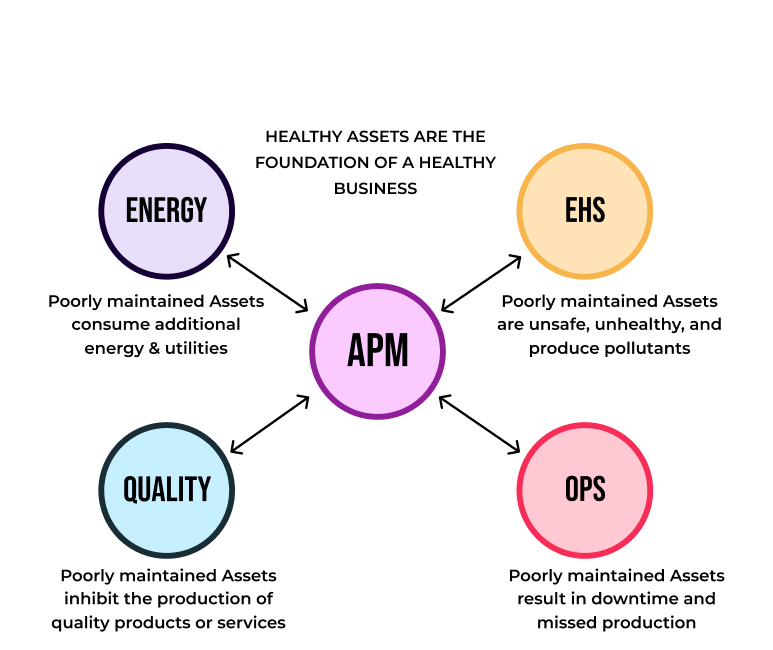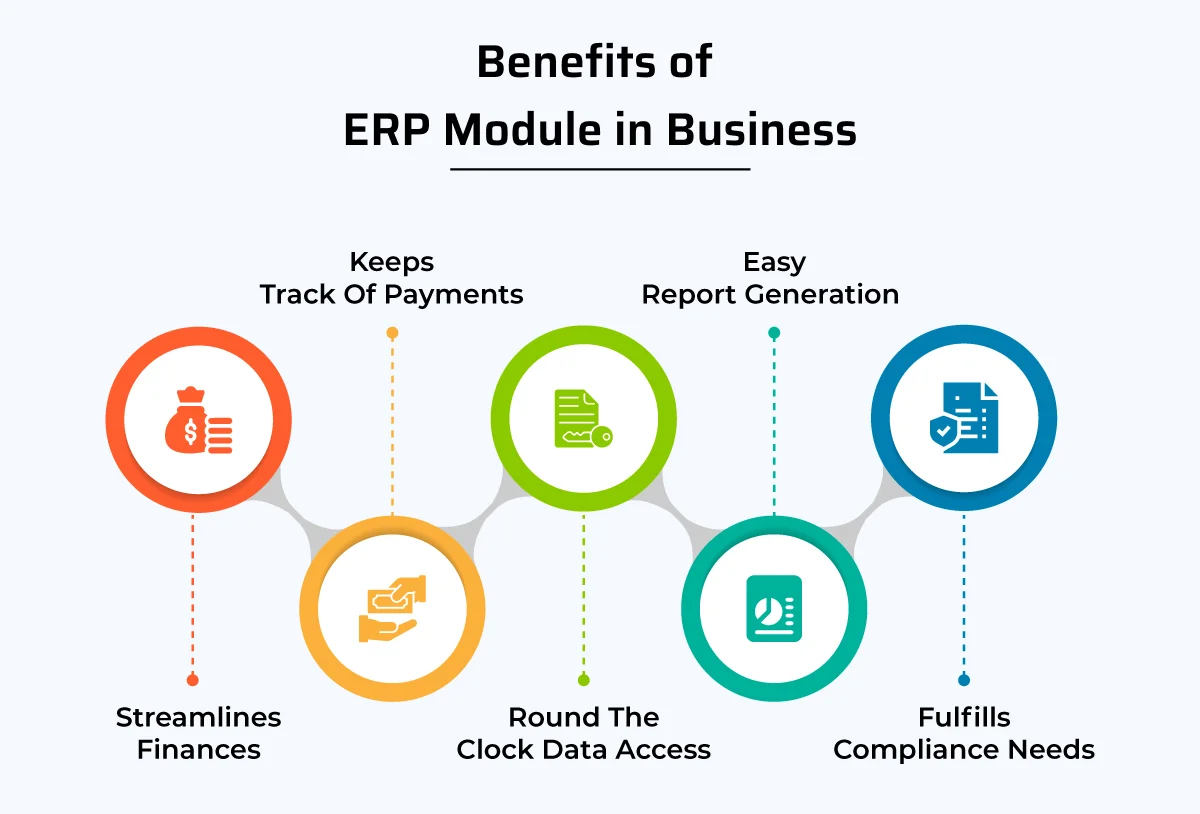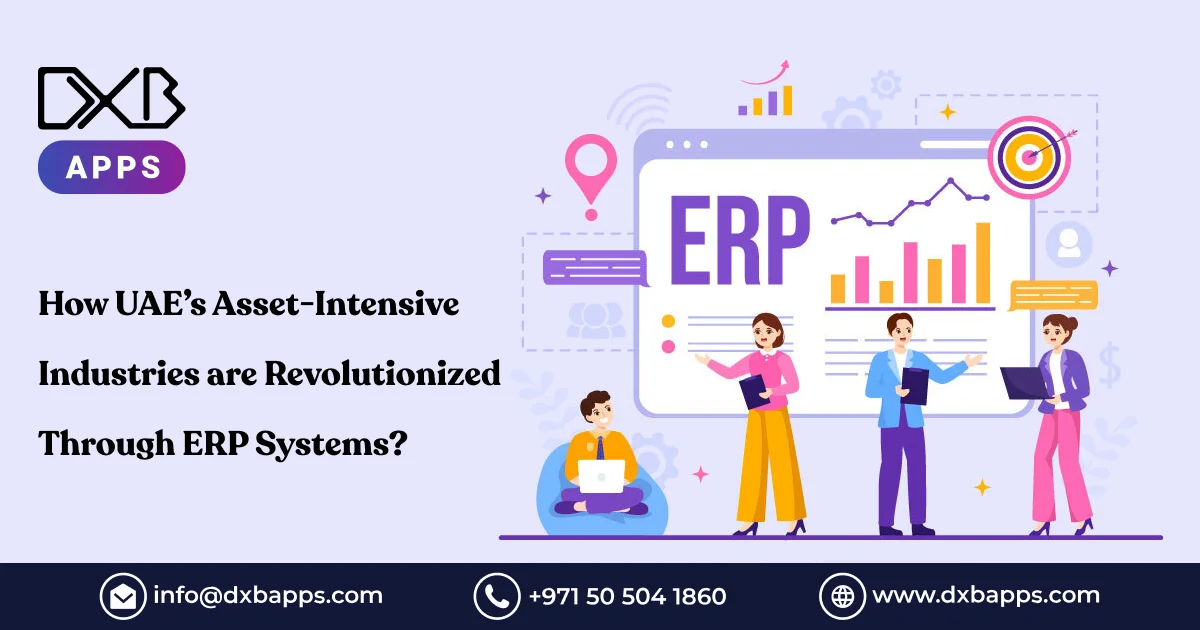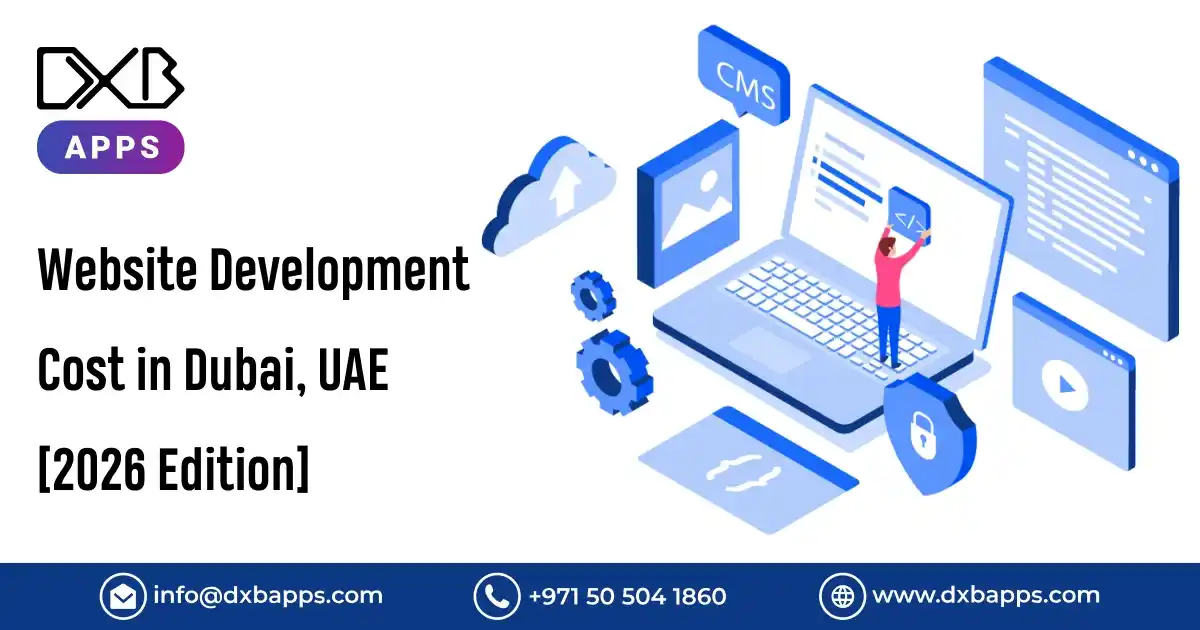Many asset-intensive businesses, such as manufacturing, transportation, oil and gas, and construction, are based in the United Arab Emirates (UAE). They mostly rely on various resources, including infrastructure, machinery, and equipment, to function well and produce reliable outcomes. Effective asset management is essential for avoiding downtime, optimizing costs, and guaranteeing seamless operations.
Problems Faced By Asset-Intensive Industries
Asset-intensive industries face several difficulties, including:
Managing a large number of assets with complex lifecycles:
Effectively monitoring and managing these assets can be difficult due to their complexity.
Maintaining compliance with safety and regulatory requirements:
Failure to do so may result in heavy fines and damage a company's reputation.
Reducing maintenance costs and downtime for operations:
Businesses that depend heavily on assets may find that downtime is quite costly.
Improving asset use efficiency:
In these businesses, maximizing profitability necessitates optimizing asset utilization.
Making decisions based on data-driven insights:
Asset management, maintenance, and investment in these industries depend on data-driven judgments.

Critical Roles Of ERP Systems In Asset-Intensive Industries
Asset-intensive enterprises can benefit greatly from the assistance of enterprise resource planning (ERP) systems in overcoming these obstacles. They provide a consolidated framework for managing different aspects of business operations, including financial management, work order management, asset management, and more. Asset-intensive industries can benefit from ERP systems' integration of these many business activities by being able to:
Simplified Asset Administration: A Solid Base
Industries that rely heavily on assets usually handle enormous amounts of property, such as infrastructure, vehicles, machinery, and equipment. Reducing maintenance expenses, optimizing return on investment, and limiting downtime depends on these assets being managed well throughout their lifespan.
Top Erp software Dubai software's asset management module offers businesses a consolidated platform to store critical data about individual assets, such as purchase specifications, maintenance records, warranty details, and depreciation schedules.
Work Order Management: Effective Upkeep Procedures
In asset-intensive companies, maintenance is essential because unanticipated breakdowns can cause significant operational disruptions and financial losses. Comprehensive work order management features provided by top Erp companies in Dubai enable effective maintenance procedures.
With a feature-rich and best Erp solution in Dubai platform, work orders can be created, assigned, and tracked for every maintenance task. Work order management is integrated with asset management ERP by the best ERP software companies in Dubai, enabling businesses to link maintenance duties to individual assets directly. This indeed reduces the risk of unplanned failures and enables proactive maintenance scheduling.
Data-Driven Decision-Making: Practical Applications For Enhancing Performance
Data-driven decision-making is essential for maximizing asset performance and overall operational efficiency in asset-intensive companies. Best Erp Dubai systems gather and examine data from various sources, including maintenance logs, equipment readings, and Internet of Things sensors.
Moreover, ERP app development Riyadh provides real-time monitoring and dashboards with performance metrics and key performance indicators (KPIs). Management teams may use these data to evaluate compliance levels, maintenance costs, and asset utilization, which helps them make well-informed decisions for ongoing improvement.
Mobile Asset Management: Providing Workers With More Power
Workers in asset-intensive sectors are frequently mobile and frequently work in remote areas. Field technicians and operators can access asset management features through ERP systems that have mobile capabilities.

Field staff has real-time access to asset status updates, maintenance activity logs, and asset information through mobile app development in Riyadh. This encourages openness and cooperation by guaranteeing the central database is current and available to all parties involved.
Financial Management Integration: Total Asset Visibility
Financial management modules can be connected with ERP systems in asset-intensive sectors to provide complete asset insight from acquisition through retirement. Accurate asset assessment, tracking of depreciation, and adherence to accounting standards are all provided by this integration.
The ERP system by the best ERP software solution provider in Dubai records the cost of an asset and other pertinent financial data at the time of acquisition. An extensive financial history is created since related expenses are recorded when the asset receives maintenance or repairs.
ERP systems also assist in determining an asset's net book value at the time of retirement or disposal and aid with the necessary paperwork to ensure that financial reporting rules are followed.
Predictive Maintenance: Reducing Expenses And Downtime
Asset-intensive sectors stand to gain much from predictive maintenance, and ERP systems are at the forefront of making this practice possible. These systems can forecast future failures and maintenance needs by examining past maintenance data and real-time asset performance data.
Anticipating maintenance requirements enables businesses to plan repairs during scheduled downtime, lessening the impact on production schedules. By taking a proactive approach to maintenance, you may reduce total maintenance costs and avoid expensive emergency repairs.

How can an ERP System Streamline Asset Management?
ERP systems surely provide a consolidated platform for managing all asset lifecycle aspects, simplifying asset management. These aspects include:
Acquisition Of Assets:
ERP systems make it easier to keep track of new asset purchases, guaranteeing accurate capitalization.
Asset Deployment:
Asset deployment is made possible by ERPs, which guarantee that assets are placed correctly and at the appropriate periods.
Asset Usage:
Using ERP systems, businesses may track asset utilization and indeed identify areas where performance can be improved.
Asset Maintenance:
Predictive and corrective maintenance schedules are created and managed using ERPs.
Asset Retirement:
ERP systems support asset retirement monitoring, ensuring safe and ecologically friendly disposal procedures.
How do ERP Systems Handle Work Order Management?
ERP systems surely provide a single, integrated platform for generating, supervising, and managing work orders. These systems enable companies to:
Simplify The Development Of Work Orders:
ERP may generate work orders automatically for regular and preventive maintenance chores, reducing time and increasing efficiency.
Real-Time Work Order Tracking:
ERP systems track work orders' status in real-time and notify relevant parties, guaranteeing they are completed on schedule and within budget.
Prioritize Work Orders:
ERP systems help to prioritize work orders so that essential tasks are completed first. This reduces idle time and increases output.
Work Order Reports:
Work order reports can be generated by ERPs, which can provide thorough data on spending, work order performance, and other pertinent parameters. This data makes educated decisions about asset maintenance and optimizing work order management procedures easier.
Mobile Asset Management:
ERP solutions enable field technicians and maintenance teams to access critical data, issue work orders, and give real-time updates from any place in today's mobile-centric business environment. This mobility improves responsiveness and efficiency.
Predictive Maintenance To Lower Downtime Expenses:
ERP systems' support for predictive maintenance is one of their most outstanding features. These systems predict when equipment will likely break down and plan preventive maintenance by evaluating asset data. This proactive strategy reduces unscheduled downtime, saves maintenance costs, and increases asset longevity.
DXB APPS For Online Business Empowerment With Web Development
Web development is essential for building a robust online presence using Dubai's best web design company. Using the newest technology and industry best practices, DXB Apps, a website design company in UAE, provides excellent web development services that result in beautiful, user-friendly websites that generate leads.
Conclusion
To sum up, ERP software is essential for UAE industries that rely heavily on assets. It tackles these sectors' particular difficulties, such as intricate asset portfolios and strict laws. ERP solutions enable these businesses to succeed by providing predictive maintenance, supporting data-driven decision-making, easing word order administration, and streamlining asset management. Adopting technology and collaborating with creative suppliers such as DXB Apps and app development company Riyadh enterprises may confidently overcome obstacles and seize fresh opportunities for prosperity.
FAQs:
What are indeed the main advantages of ERP systems for businesses with many assets?
- Increased effectiveness of operations
- Better distribution of resources
- Streamlined workflows and procedures
In what way does DXB Apps, an app Development Company in Abu Dhabi, set itself apart from other ERP companies?
- Solutions specifically designed for the UAE's distinct business environment
- Constant innovation and possibilities for customization
- Outstanding client service and support
- What part does ERP play in asset-intensive industries' digital transformation?
- Encouraging Data-Informed Decision Making
- Combining Various Systems To Ensure Smooth Operations
- Enabling Companies To Adjust To Shifting Market Conditions
How can companies in the United Arab Emirates use DXB Apps to start their ERP journey?
- Set up a consultation to determine the precise demands and specifications.
- Tailor ERP systems to meet the aims and objectives of your company.
- Get continuing assistance and instruction to optimize ROI.

















